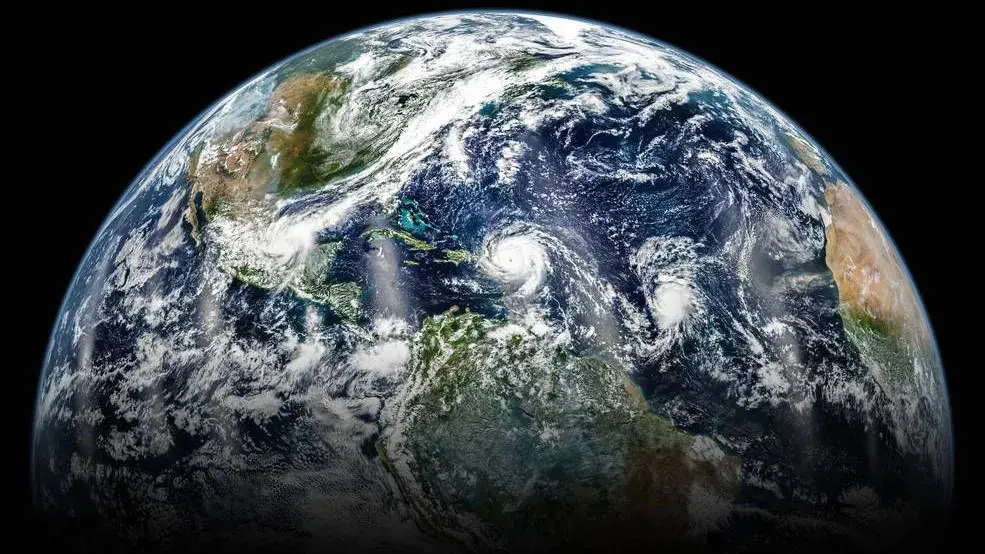A vital ocean current system that helps regulate the Northern Hemisphere’s climate could collapse anytime from 2025 and unleash climate chaos, a controversial new study warns.
The Atlantic Meridional Ocean Current (AMOC), which includes the Gulf Stream, governs the climate by bringing warm, tropical waters north and cold water south.
But researchers now say the AMOC may be veering toward total breakdown between 2025 and 2095, causing temperatures to plummet, ocean ecosystems to collapse and storms to proliferate around the world. However, some scientists have cautioned that the new research comes with some big caveats.
The AMOC can exist in two stable states: a stronger, faster one that we rely upon today, and another that is much slower and weaker. Previous estimates predicted that the current would probably switch to its weaker mode sometime in the next century.
Related: Gulf Stream could be veering toward irreversible collapse, a new analysis warns
But human-caused climate change may push the AMOC to a critical tipping point sooner rather than later, researchers predicted in a new study, published Tuesday (July 25) in the journal Nature Communications.
“The expected tipping point — given that we continue business as usual with greenhouse gas emissions — is much earlier than we expected,” co-author Susanne Ditlevsen, a professor of statistics and stochastic models in biology at the University of Copenhagen, told Live Science.
“It was not a result where we said: ‘Oh, yeah, here we have it’. We were actually bewildered.”
I think this is really the most terrifying thing on climate change that I’ve read recently. If the Gulf Stream collapses, we are well and truly screwed, and I don’t see how we stop it.
It’s so infuriating knowing we could have collectively stopped things, like we did with the ozone layer in the 80s and 90s, but there was no financial incentive to do so, like there was with getting rid of CFCs (there was a cheaper alternative that had just been developed iirc), so politicians and companies have done exactly jack and shit.
Just as a word of caution: a computer model is just a model. If there are enough parameters you can tune, it’s fun to play with, seeing what can happen. But just because you get a result from a model doesn’t mean it’s guaranteed to happen. Models are written by people, they have software bugs, and more. Obviously they wouldn’t publish this unless they were confident, but the scientific method is a feedback loop, and we’ve only been through that loop once here so far.
What needs to happen now is other scientists need to recreate the model. If it turns out that multiple models point this way, then it’s time to panic.
How can a current stop? It doesn’t seem like something that can break?
Did we put to much trash in the ocean and clog it up?
Warmer southerly waters, which are saltier and denser, flow north to cool and sink below waters at higher latitudes, releasing heat into the atmosphere.
Then, once it has sunk beneath the ocean, the water slowly drifts southward, heats up again, and the cycle repeats. But climate change is slowing this flow. Fresh water from melting ice sheets has made the water less dense and salty
This is the premise for the 2004 film The Day After Tomorrow, itself based on the 1999 book The Coming Global Superstorm (co-written by Coast to Coast AM radio host Art Bell). Not a new concern, I think the change for these guys is trying to put a timeline on it.
Wasn’t that the plot of “The Day After Tomorrow.”?
Yep. It’s been on the radar for a while, the film didn’t pull it out of nowhere. Though I think back in the day it was always thought of as a fairly unlikely scenario. But that was some 20 years ago. A lot has sadly not changed at all since then.








